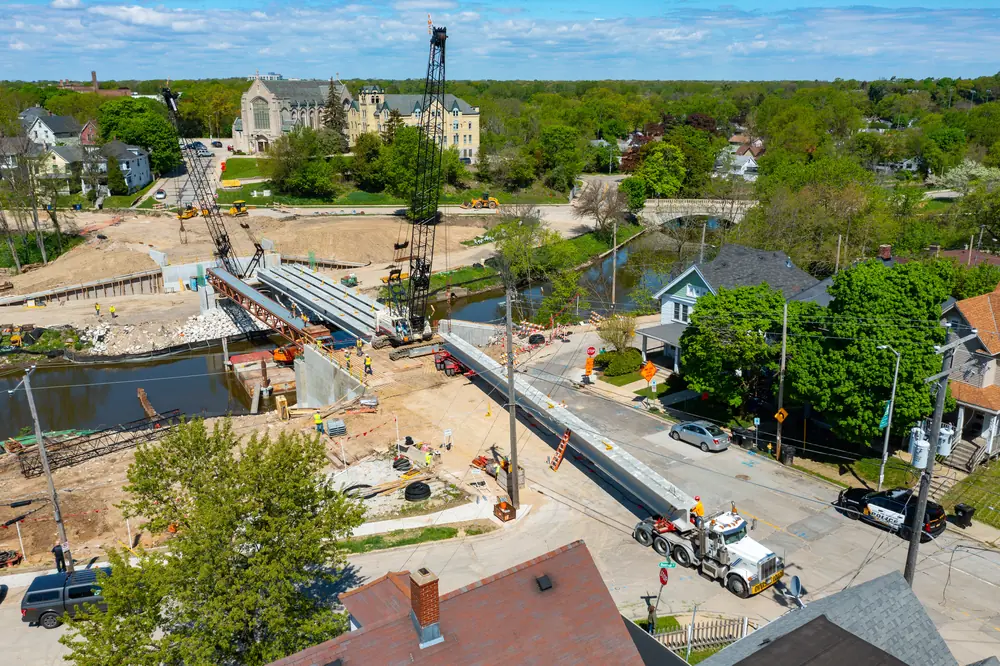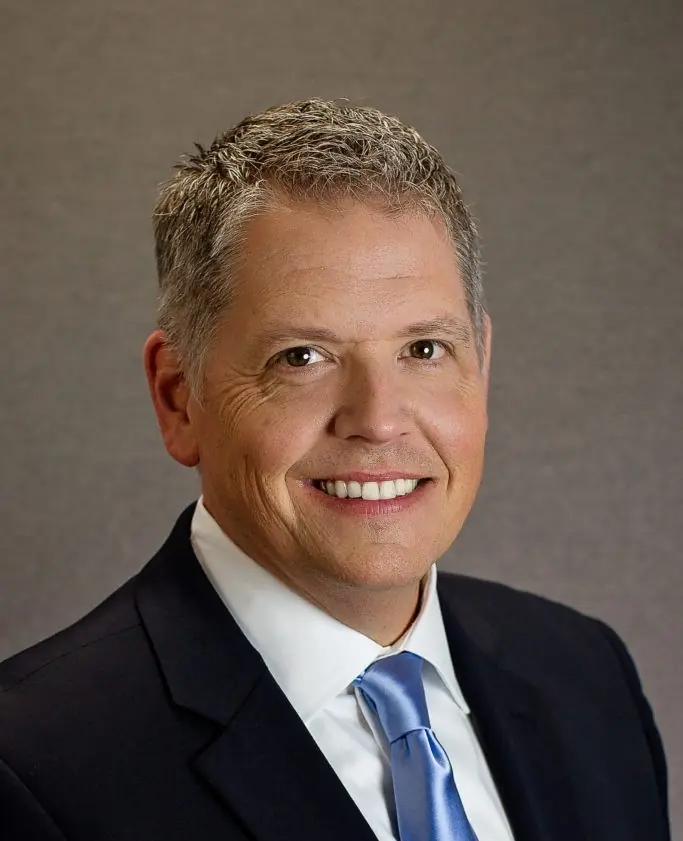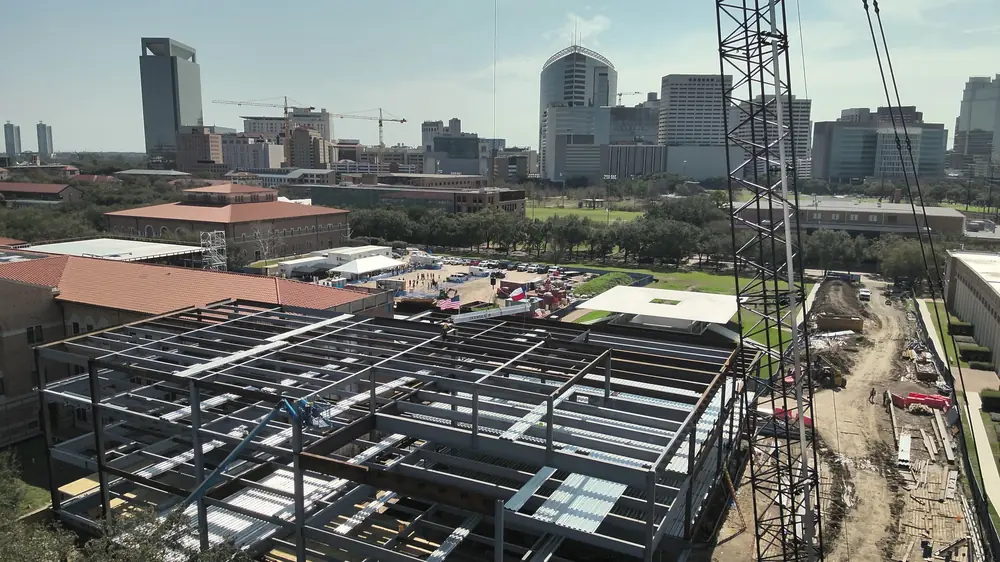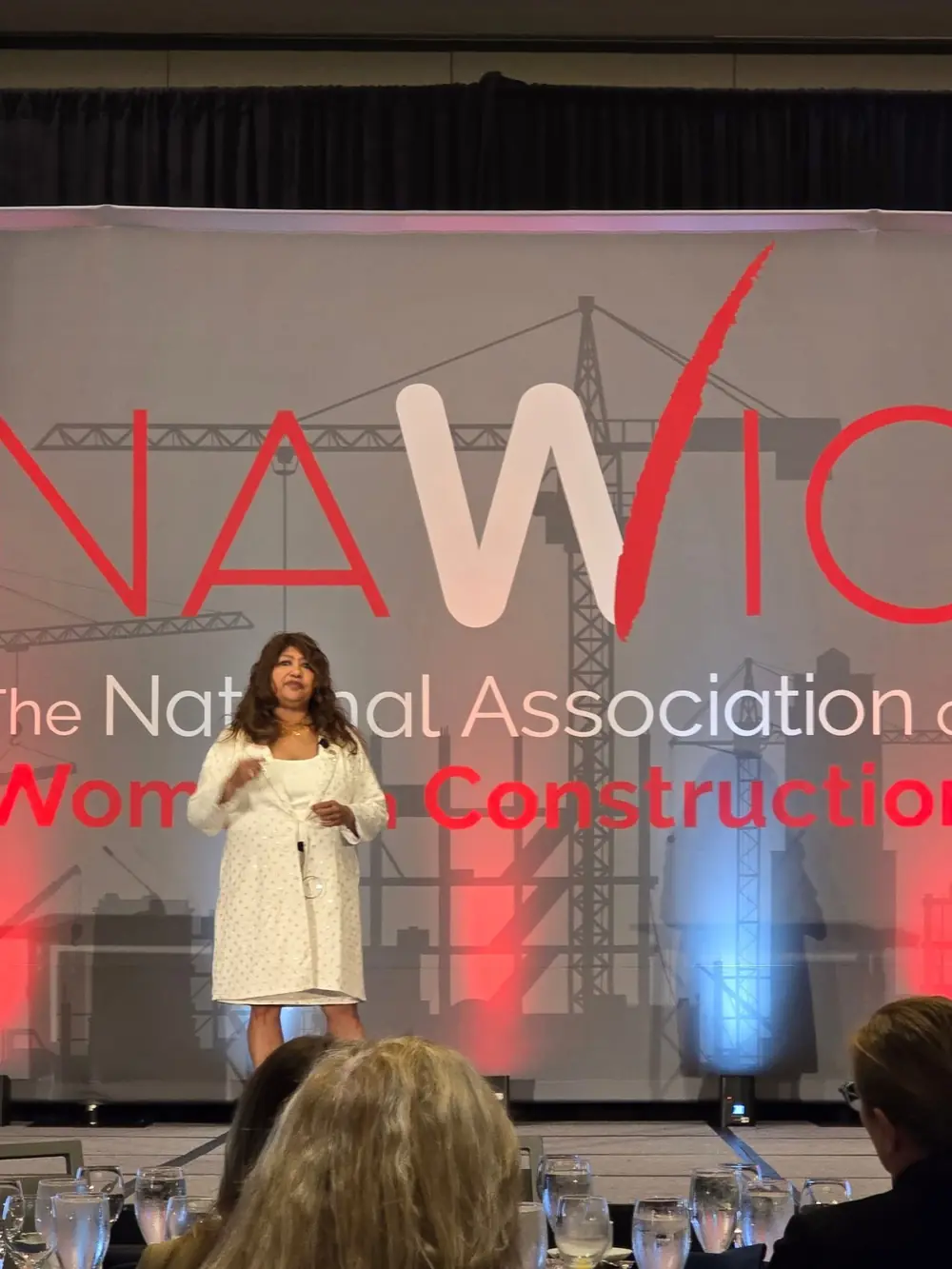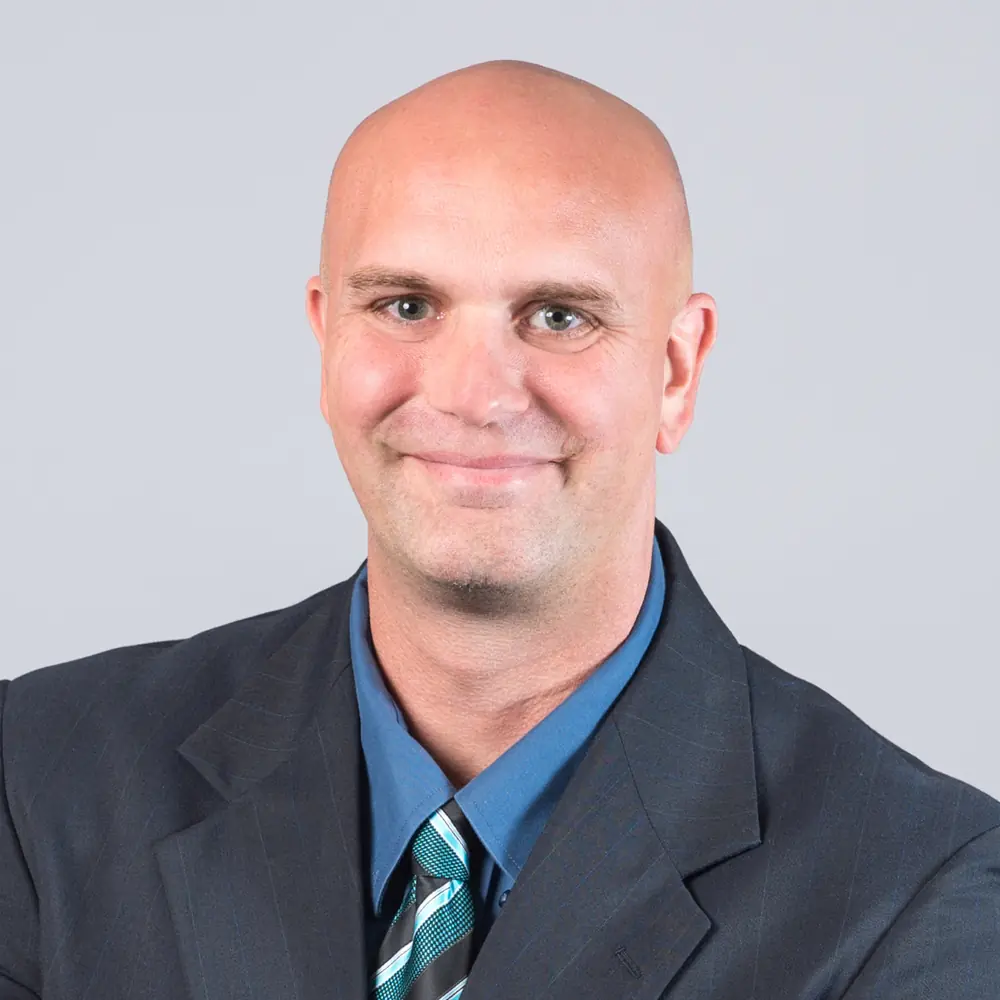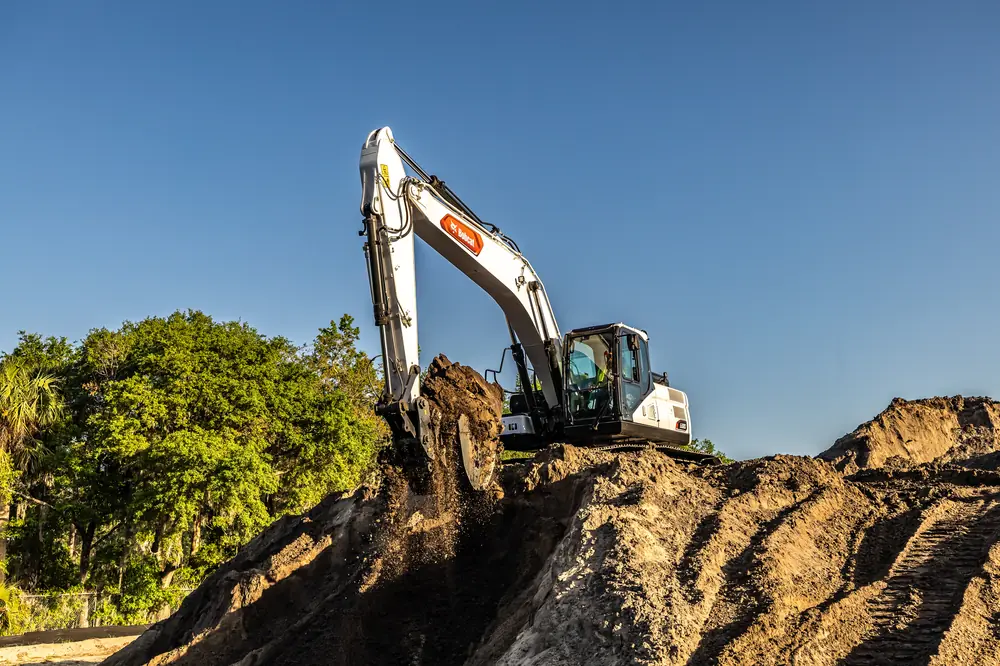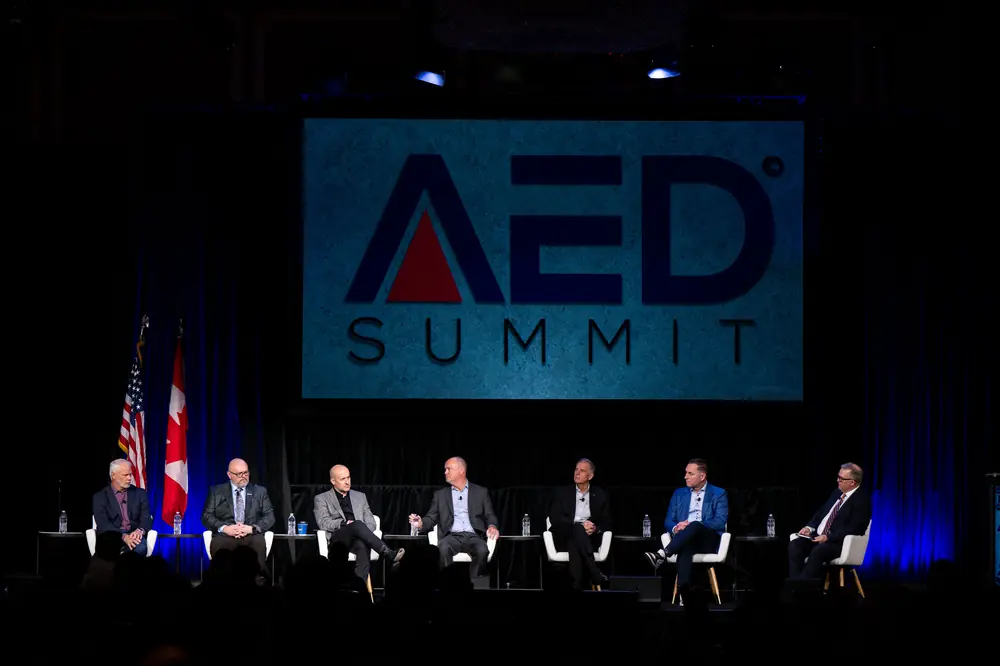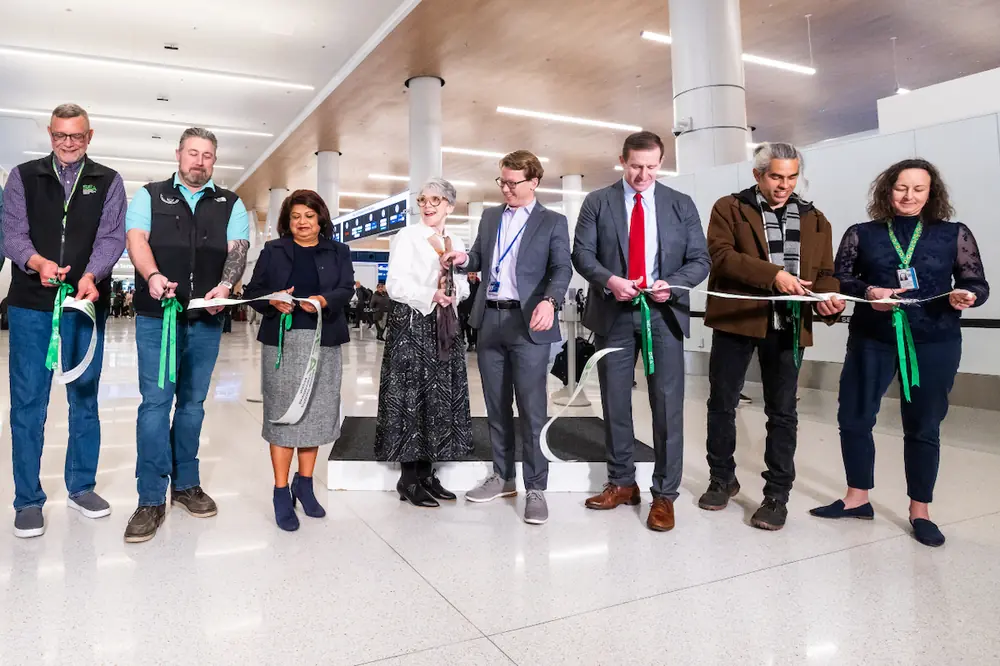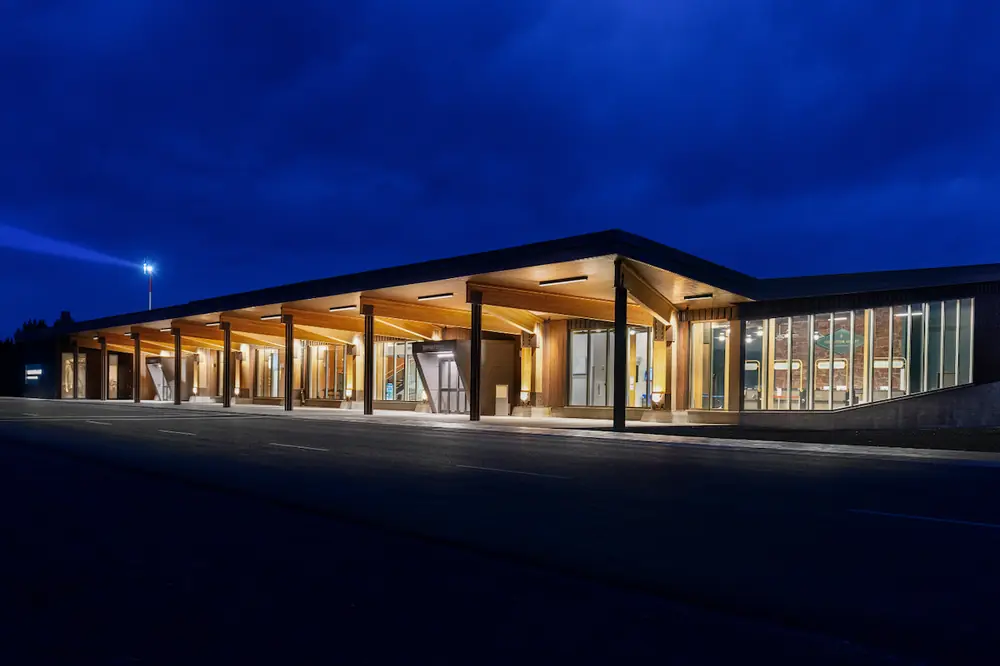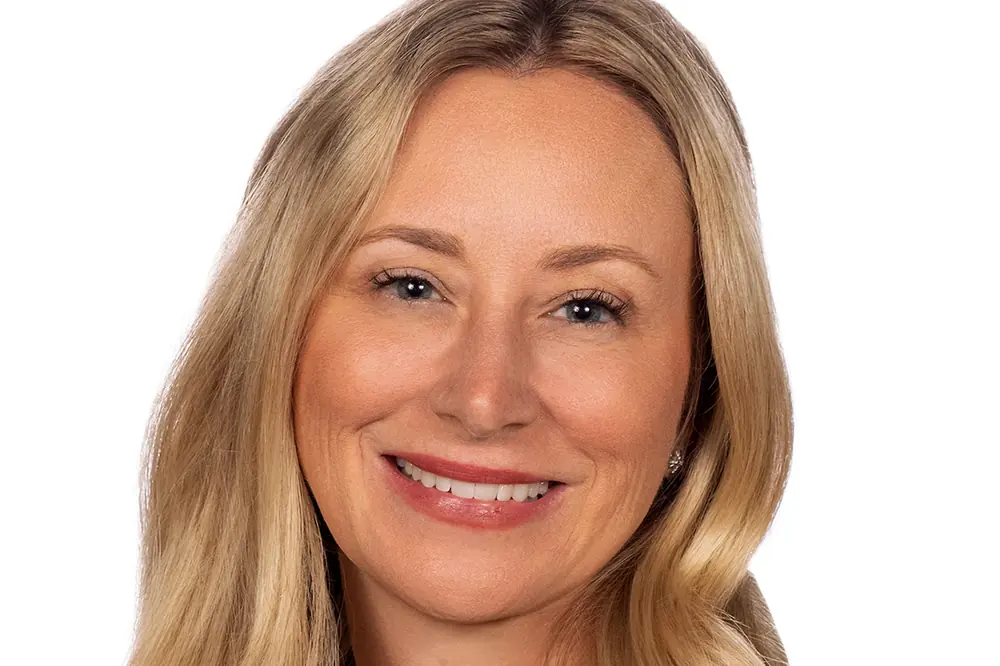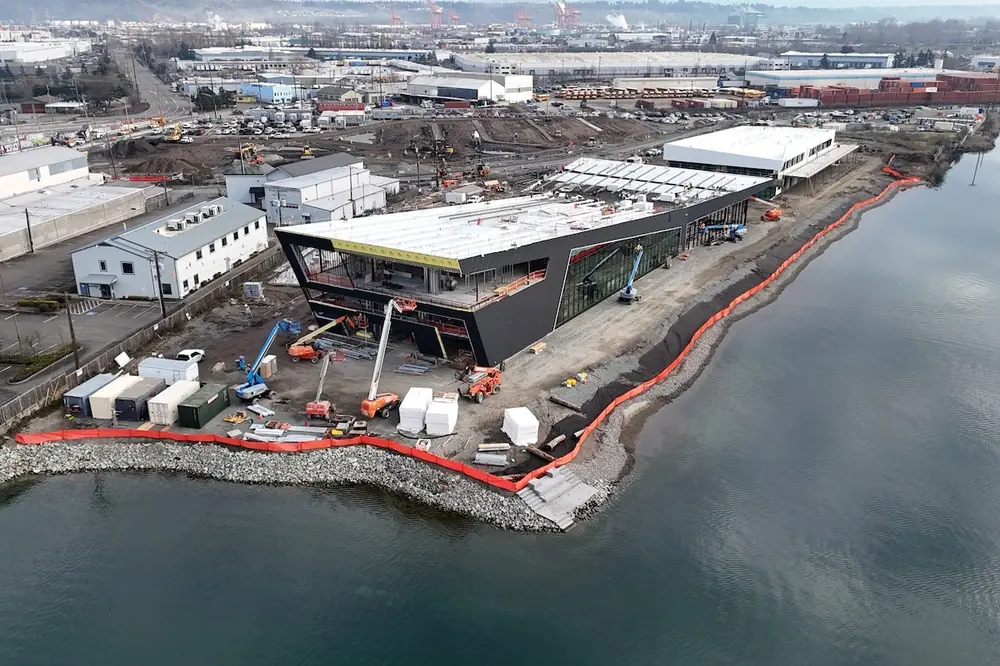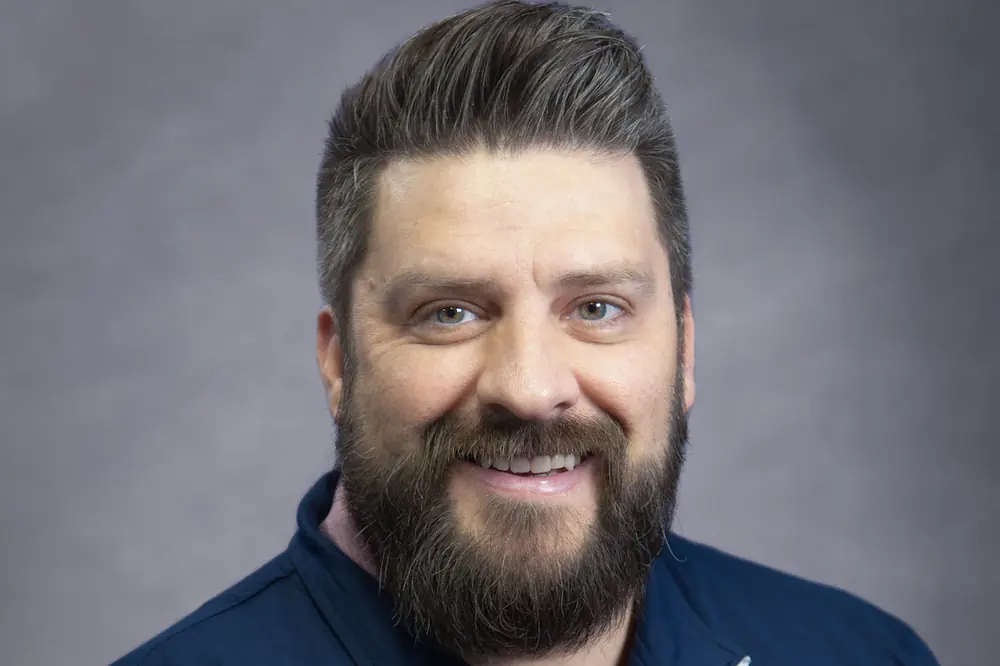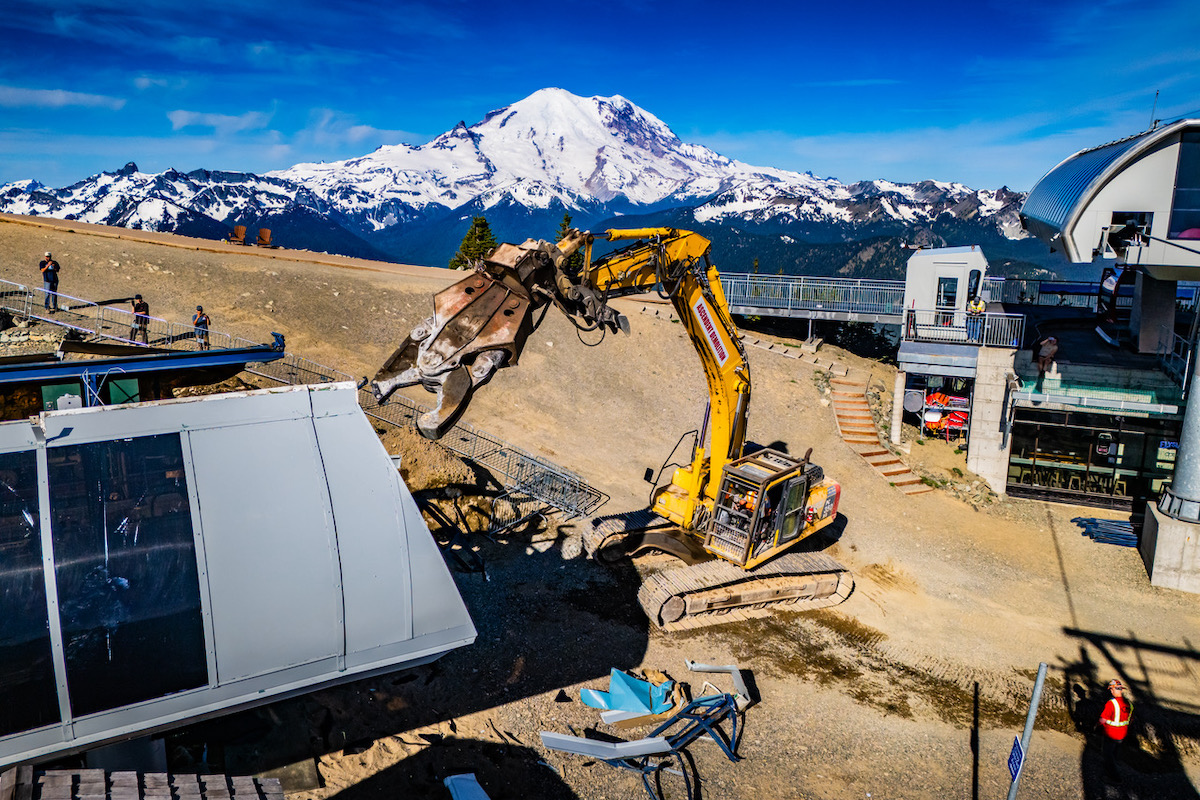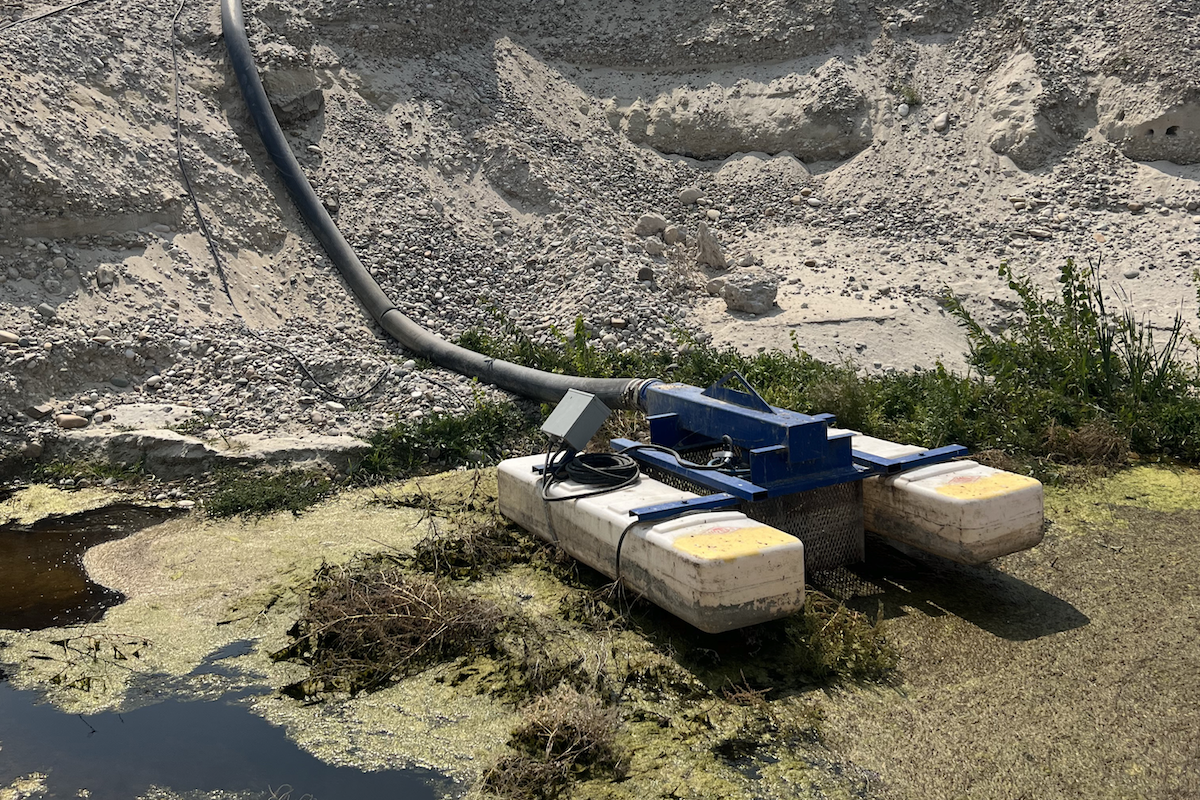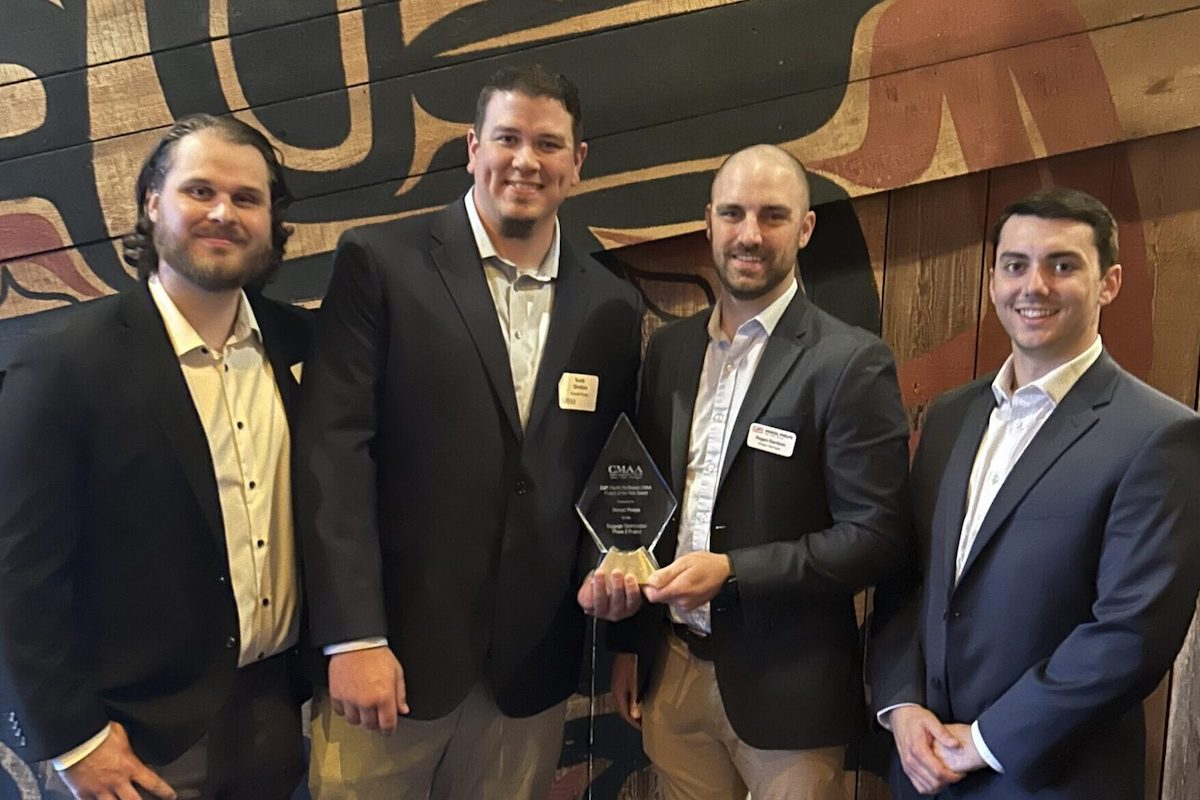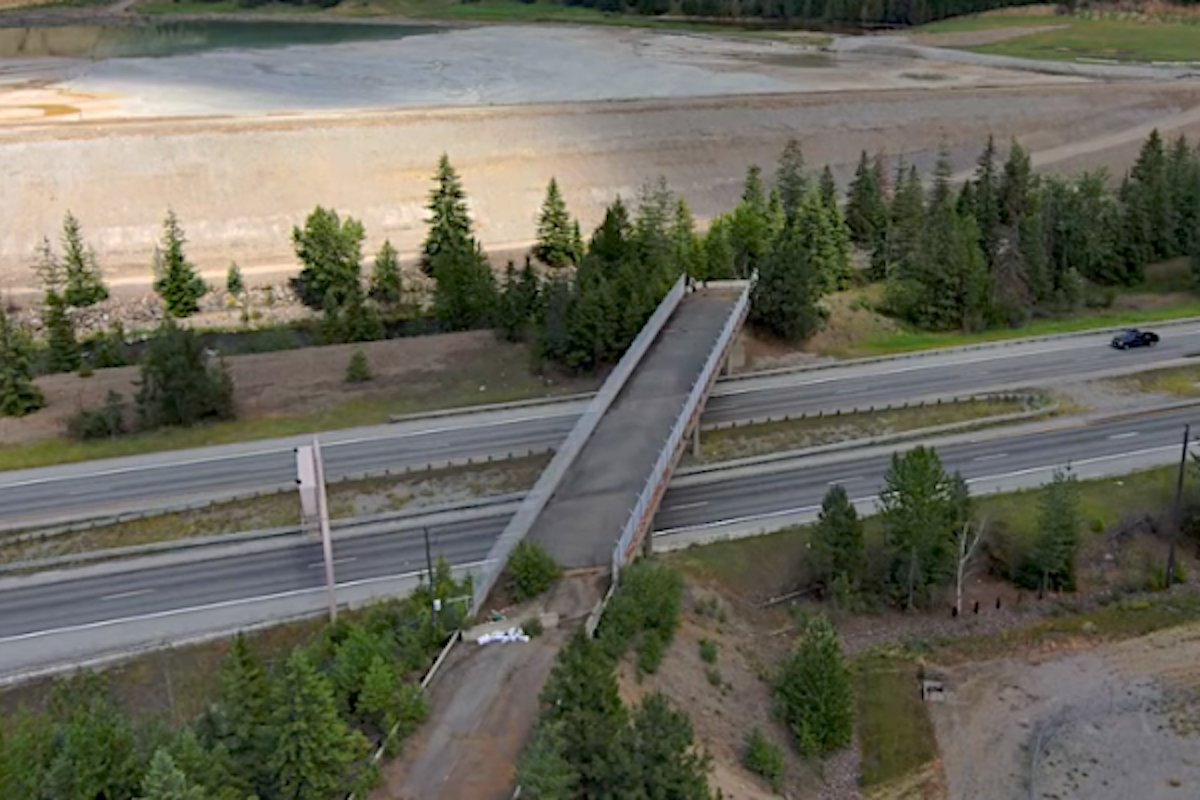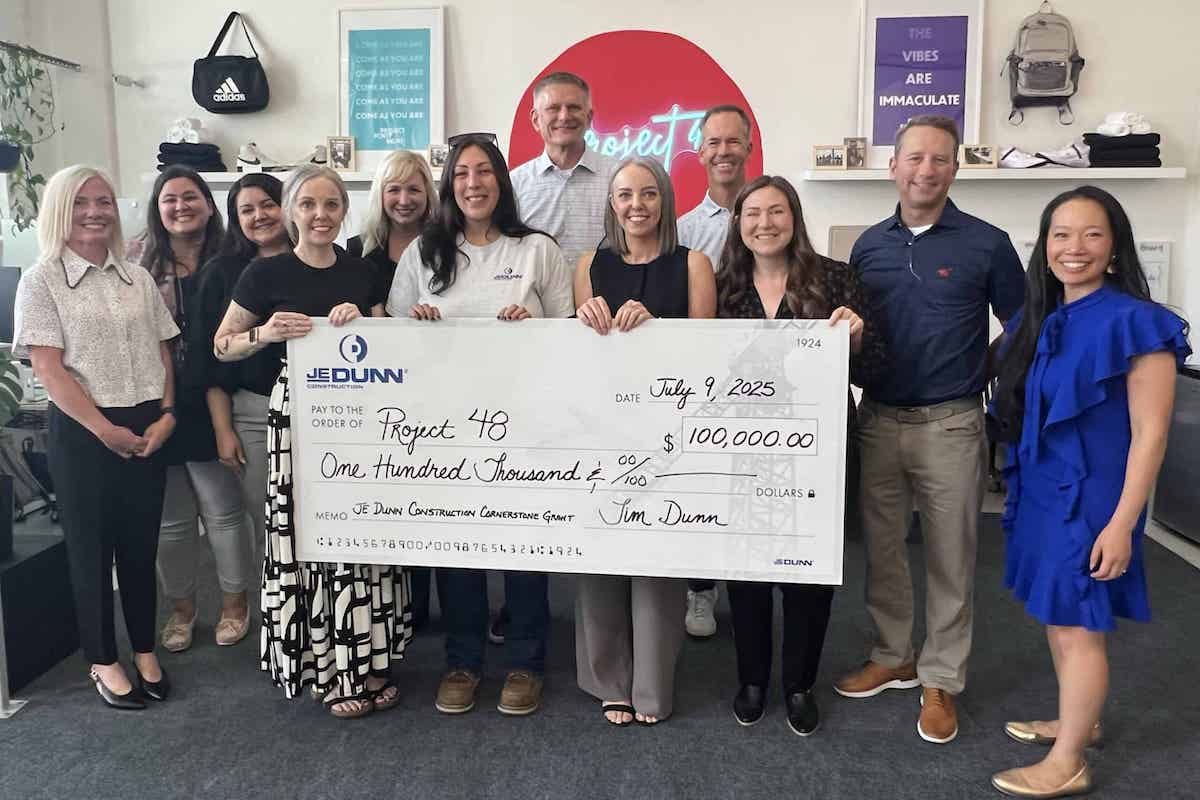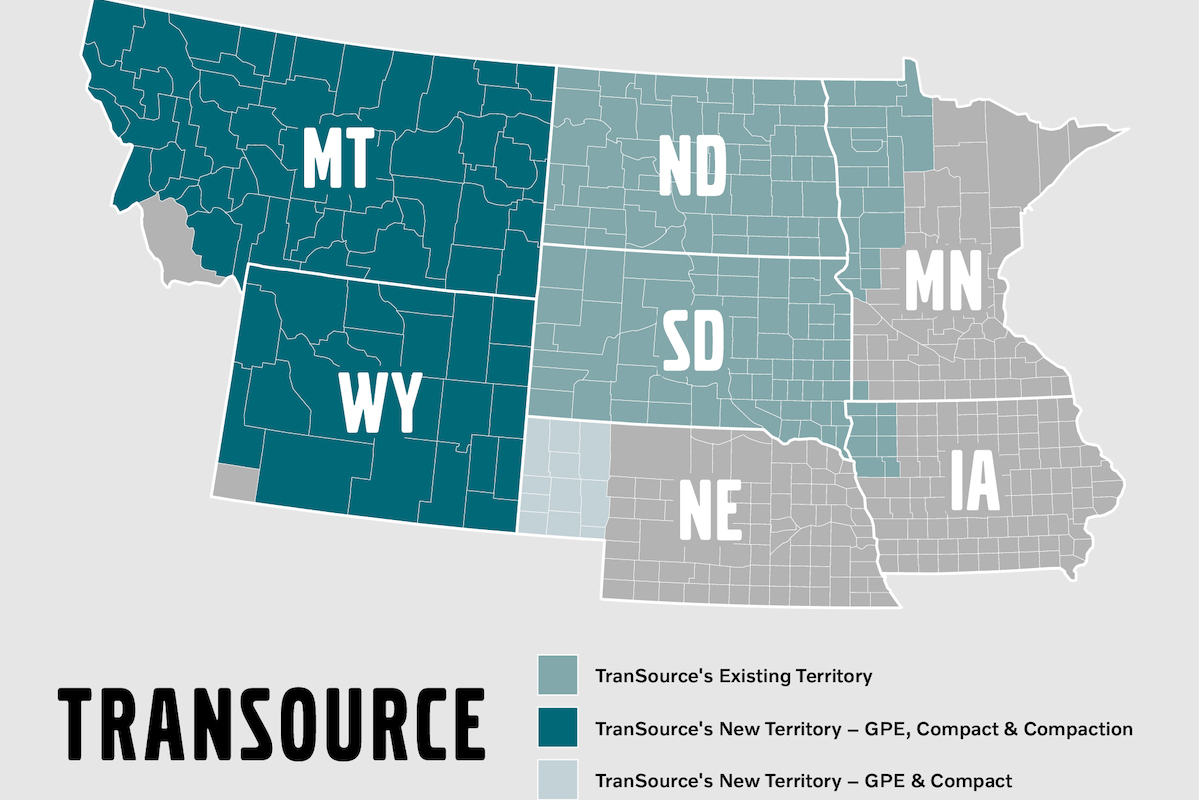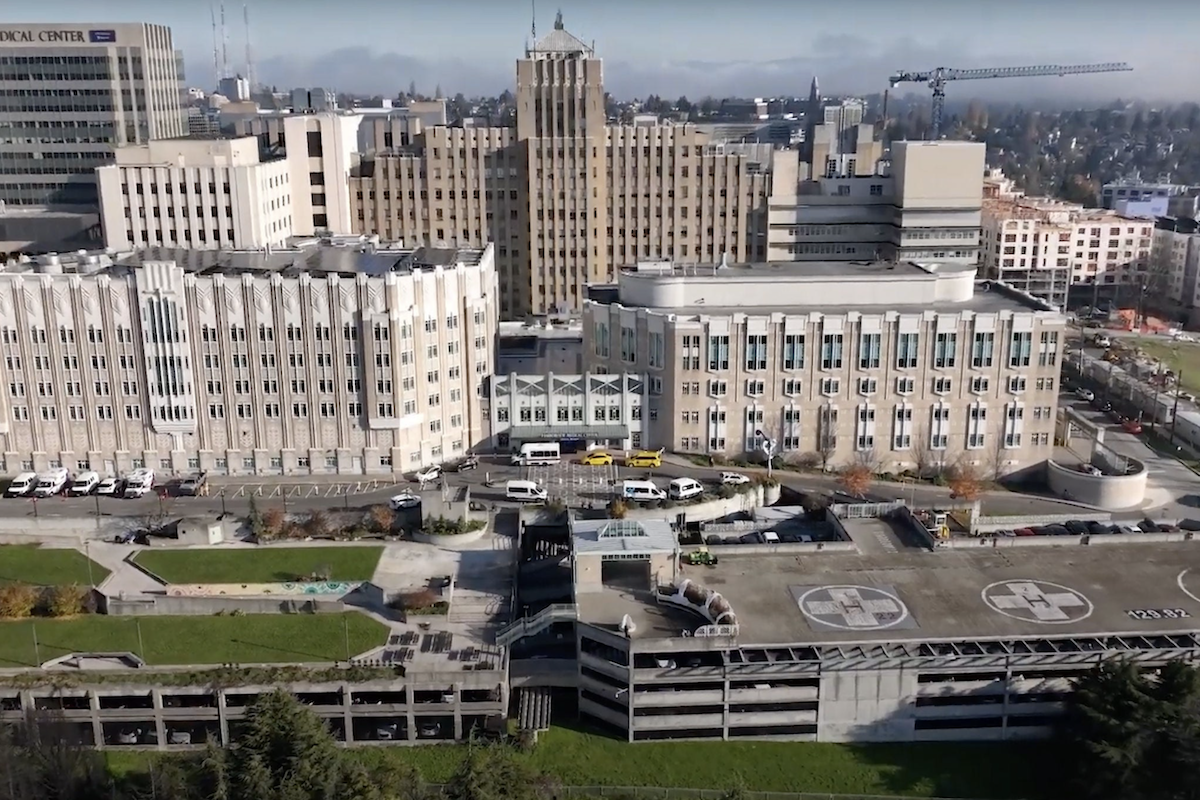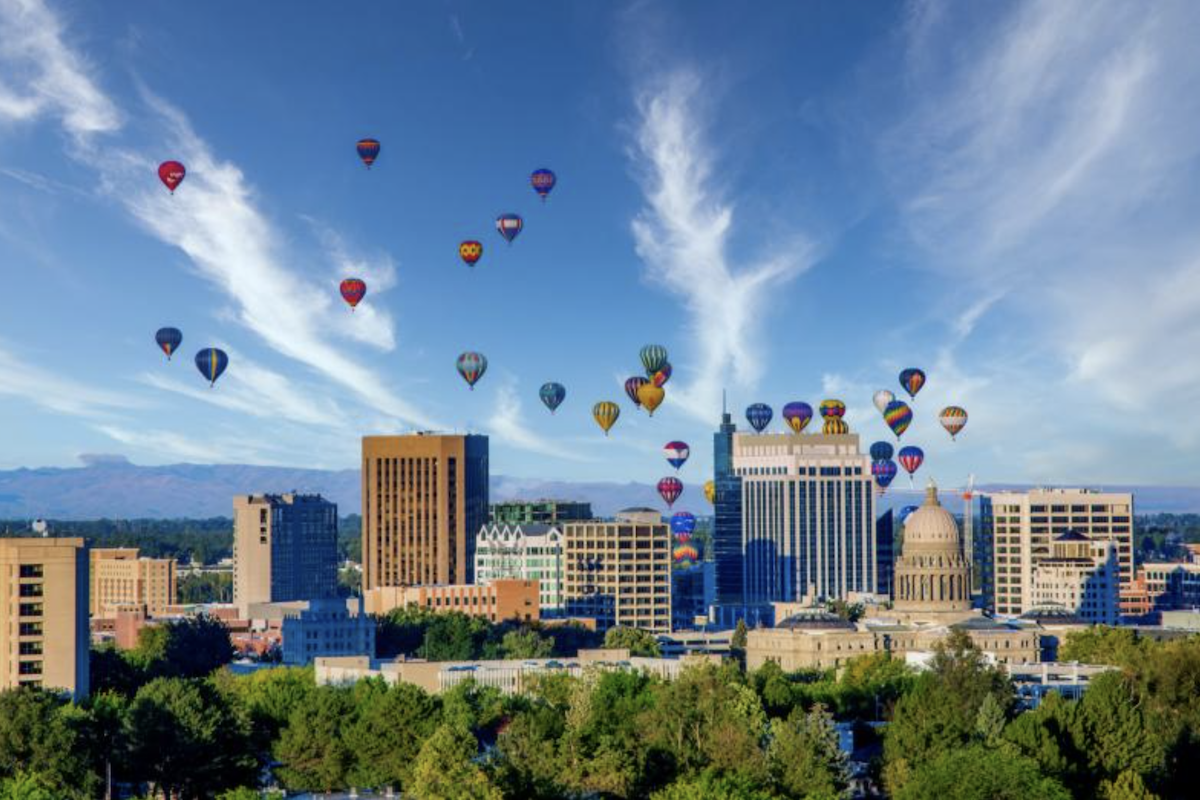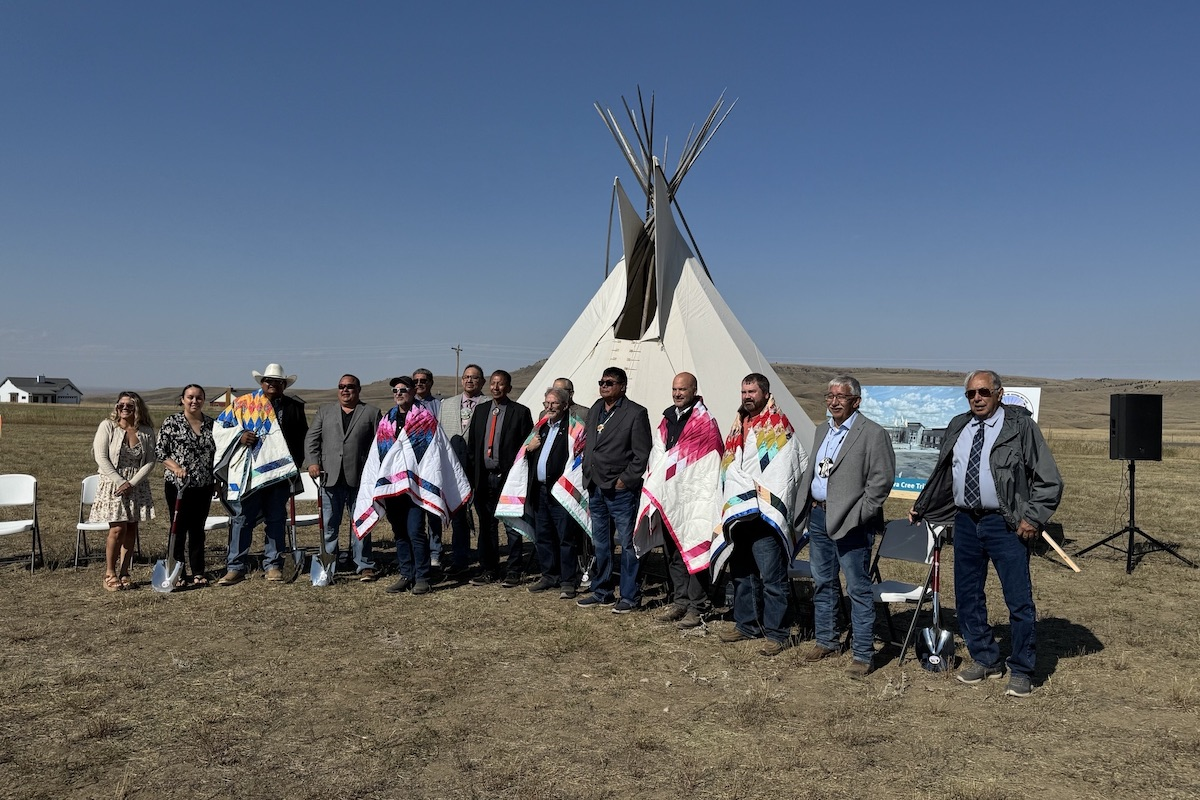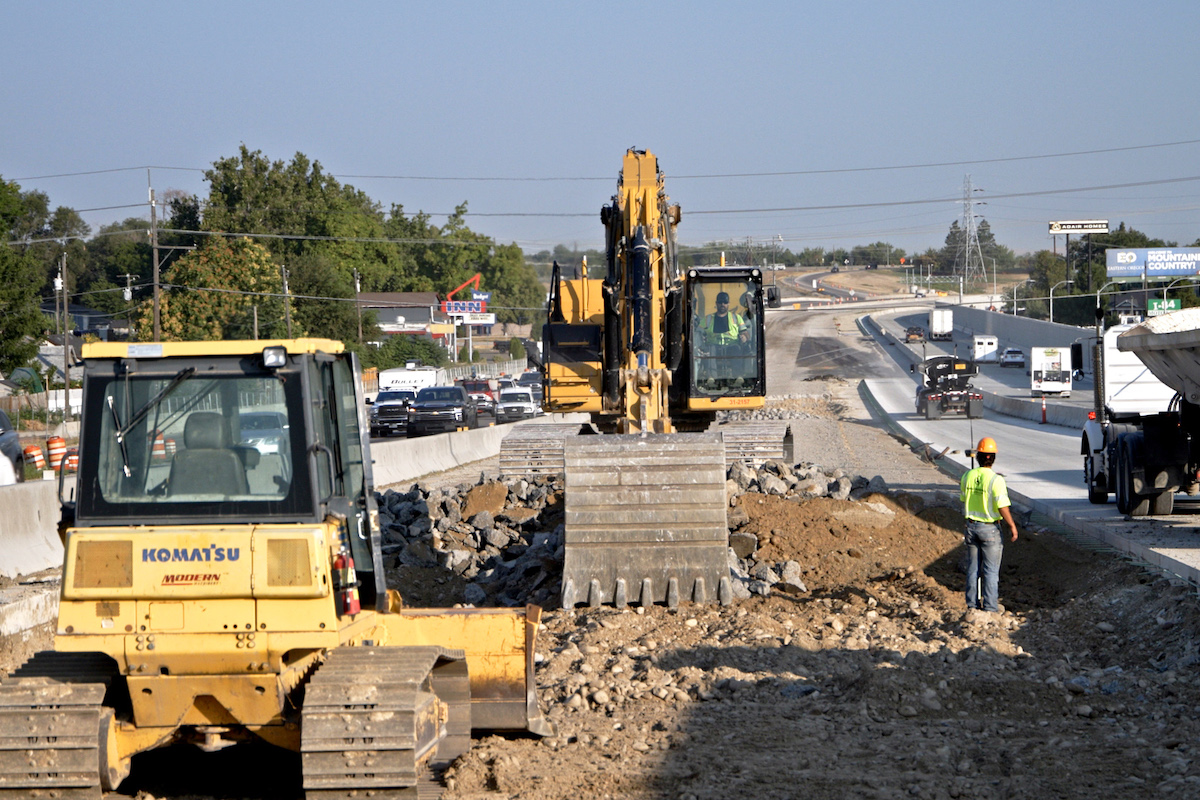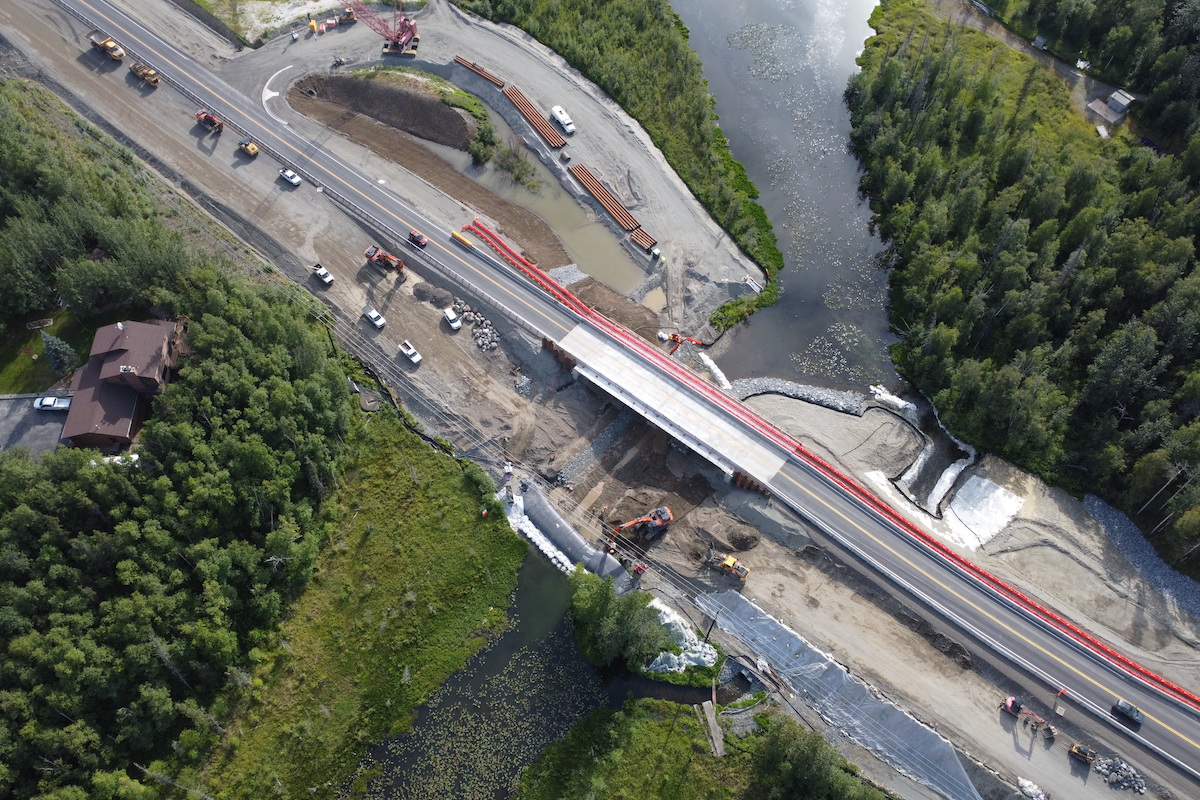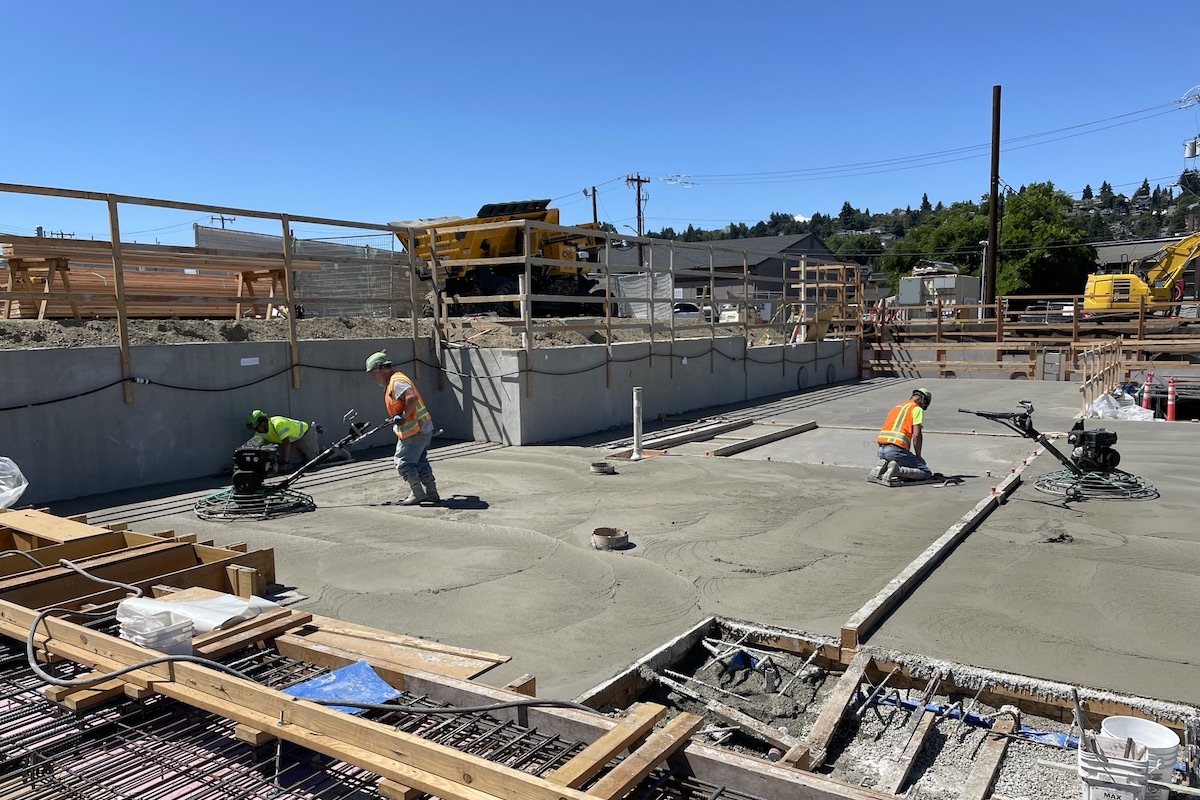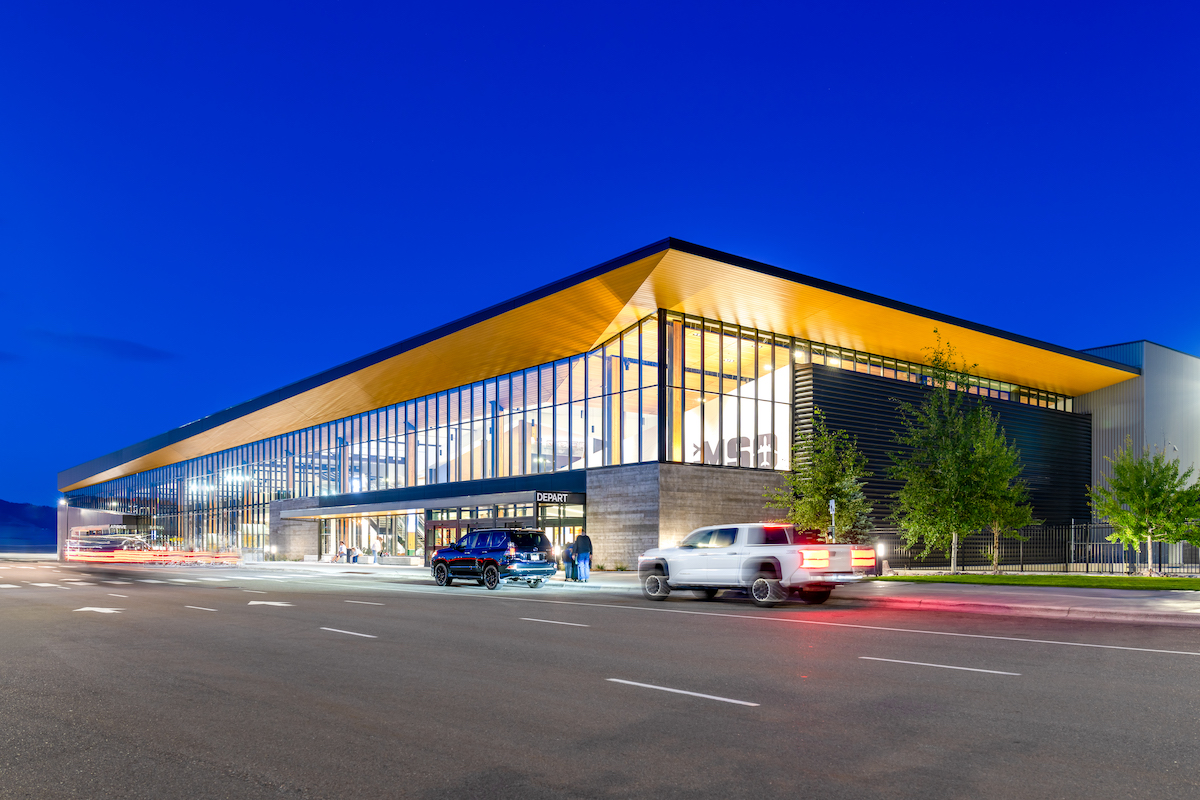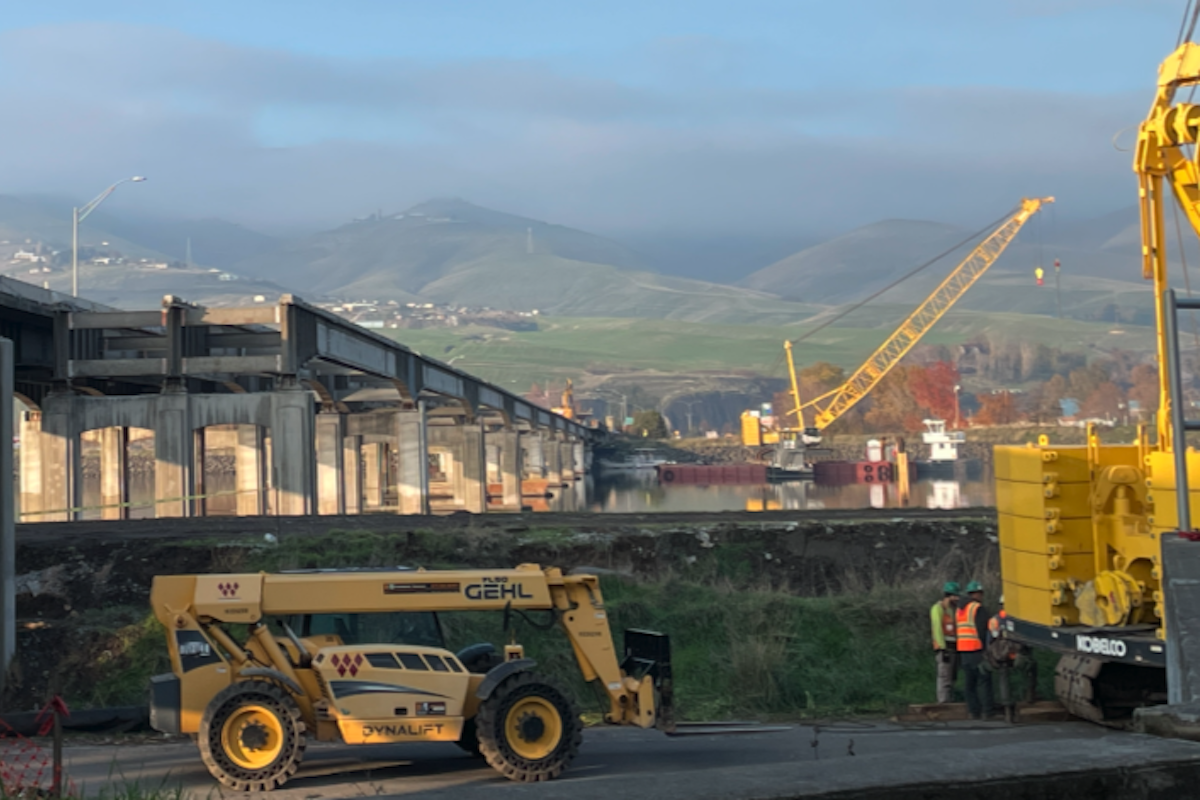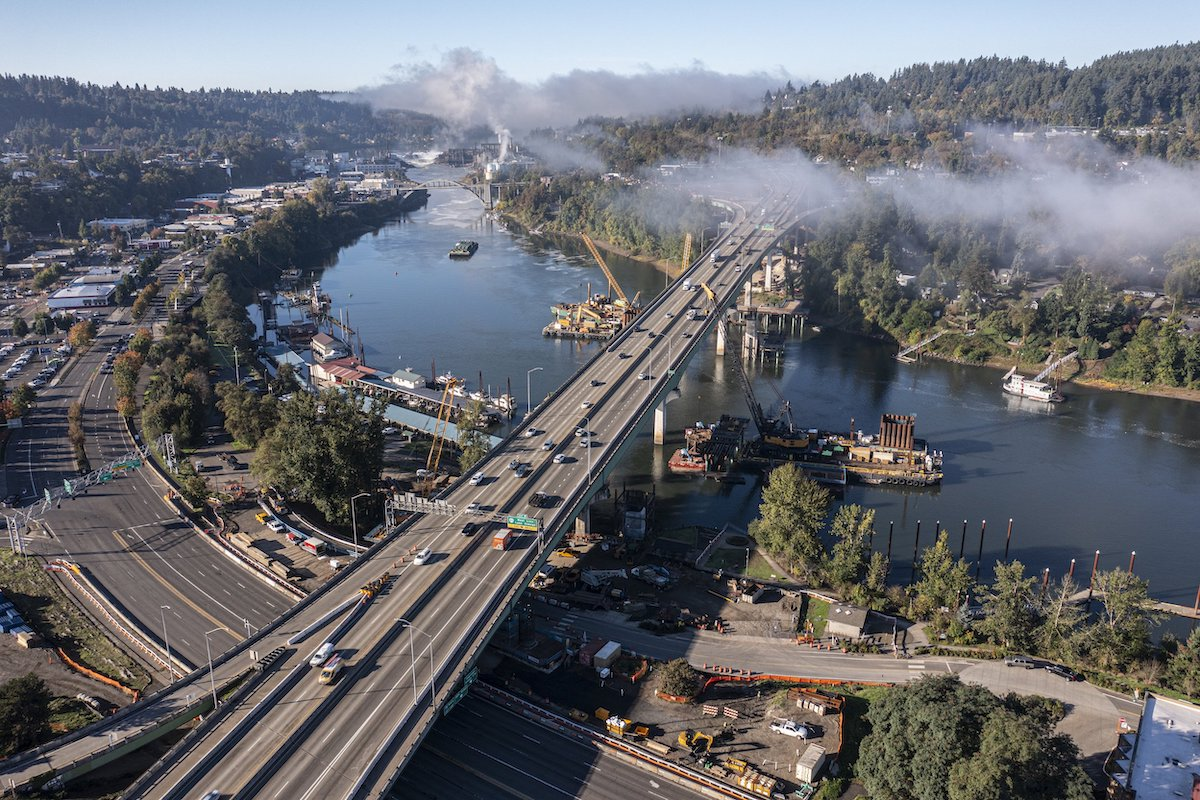Eugene, home of the University of Oregon, is a thriving town, and I-105 is one of two primary routes from the north end to the downtown area. While most of the traffic along the route is during commute hours, it also serves as a freight route and route for tourists to the Oregon coast. The average daily traffic (ADT) through the project area is 60,000 vehicles (per 2016/2017 data), and the ADT is projected to be 66,100 vehicles by 2038.
The Bridge Preservation Project began in October 2018 and was complete in October 2020. It is an ODOT Bridge Program Bridge Preservation project using State and Federal funds; the total project cost is approximately $19.6 million. The contractor on the project is Wildish Standard Paving Co. and the designer/engineer is OBEC Consulting Engineers (now known as DOWL).
Stage 1: September 2018 Through March 2019
“This stage focused on the removal of an obsolete bridge which was no longer needed and was in need of repairs,” said Beers Seydel. “Because this bridge was for a route that will not be built, and because it needed repairs, the decision was made to remove the structure. By using cellular concrete, and with the limited vertical clearance, the fill was able to be placed up to the bottom of the steel girders before traffic had to be moved off of half of the structure for staged removal. This minimized the disruption time to traffic for this work.”

| Your local Superior dealer |
|---|
| Westate Machinery Co |
Stage 2: November 2018 Through October 2020
Overhang access began in November 2018, while joint replacement started in December 2018. All portions were complete by November 2019, except for some seismic details and drains under the structures, which were complete October 2020.
“This stage involved five bridges at the west end of the project – commonly seen as on and offramps to I-105,” explained Beers Seydel. “We replaced bridge joints, bridge rail, and moment slabs, installed luminaires, and installed Carbon Fiber Reinforced Polymer (CFRP) bridge strengthening at specific locations. Also, we performed seismic retrofits and resurfaced the bridge decks with PPC (Premixed Polymer Concrete).
“The five bridges at the west end for the viaducts received slip formed concrete bridge rails. The structures are not new, but they did receive new concrete rails to meet current standards. Slip forming the bridge rail saves time over conventional forming, reducing the duration of the impact to traffic. The time needed to set up forms, then remove them, and do this repeatedly is greatly reduced. The concrete supplier also benefits from efficiencies that result from larger pour days.”
Stage 3: December 2019 Through October 2020

| Your local Trimble Construction Division dealer |
|---|
| SITECH Northwest |
“This stage focused on the Willamette River Bridge and the Delta Highway on-ramp bridge,” said Beers Seydel. “Work included hydroblasting the bridge deck, performing Class 2 concrete repair, installing new bridge rail, installing new bridge joints, adding CFRP bridge strengthening in specific locations, and resurfacing the bridge deck with High Performance Concrete. Thermoplastic striping is used on the entire project.”
Beers Seydel noted that pre-pandemic, the plan was that no lane closures would be allowed June 19 to 28 or July 24 to 28, for U.S. Olympic Track and Field Trials and the Lane County Fair, both large local events. However, because of the pandemic, the Olympic Trials were postponed until 2021, and the County Fair was cancelled. Thus, traffic was very light, and the project was allowed to move directly into the eastbound closure upon opening westbound.
“An additional challenge to the community was a second major intersection reconfiguration project occurring at the north end of the connecting highway, just several miles away,” she said. “Many commuters had to go through both construction zones daily, so coordination between projects has been vital.
“The initial construction plan included months-long closures on each ramp, some at the same time. It quickly became apparent that initial lane closures were having significant traffic impacts throughout the community, even before the ramp closures began. In effect, our messaging was too successful and the community scrambled to other routes the first day, causing traffic jams in places never seen before. The city modified traffic light timing and we provided some upgraded equipment for traffic monitoring, such as new cameras, linking them into our traffic map notification system, TripCheck.com.
“When encouraging people to trust that they would be able to get through the construction zone with short delays most of the day wasn’t enough, we paused the project for a few weeks and reworked the construction schedule in cooperation with Wildish. The result was eight to 12-week closures of ramps, rather than three to six months.

| Your local Somero dealer |
|---|
| American Construction Supply |
“We developed and implemented a comprehensive communication plan, partnering with the city of Eugene, Lane County, and the local bus service transportation options group, Point2Point. Our transportation options division of ODOT provided outreach funding and support for innovative partnerships, including transit, bike share opportunities and business outreach. We shared information early and often about the project through direct email, radio advertising, and presentations to schools, business partners, and community organizations.”
Another challenge was keeping the multi-use paths underneath the Willamette River Bridge open on both sides of the river during construction. Protection measures were put in place to ensure the safety of people on the path, Beers Seydel says. “The contractor provided a spotter on the path to keep users safe when working over it. There was a handrail with fabric containment as well as the existing concrete rail base that was left in place.”
Moreover, much of the later project work took place during the pandemic, and then the Oregon wildfires, which both caused much upheaval. Overall, however, the project stayed ahead of schedule, Beers Seydel reports, due to the ability to continue working through the COVID-19 related event cancellations and reduced traffic. “The poor air quality and evacuations from local forest fires caused some missed work shifts. At the end of Phase 2, rain delayed striping about a week.
“The crews have had to be mindful of 6-foot social distancing,” said Beers Seydel. “Wildish implemented new social distancing safety protocols for complying with the pandemic. They also secured a portable hot water handwashing station onsite for crew members. We focused on completing the work needing lane closures before traffic picked up again, to minimize the impacts on the travelling public.”
Tim Hendrix, Manager, Wildish Standard Paving Co. said, “We appreciate the community working with us to get through the multi-year project and expect that now it will be in use for decades to come. U.S. Representative Peter DeFazio, 4th District covering Eugene/Springfield, took a personal interest to provide input for the job team to consider as it searched for ways to minimize and mitigate traffic inconveniences.

| Your local Metso Minerals Industries Inc dealer |
|---|
| PacWest Machinery |
| Westate Machinery Co |
“2020 was a year of unexpected challenges. The project was completed in spite of learning to perform work with newly developing COVID-19 protocols, in spite of important protests and yet unfortunate riots causing damages to the job, and in spite of delays to some work activities related to unprecedented smoke and air quality issues. All the players and stakeholders should be proud to have worked together to push this project cross the finish line safely, healthily, with superior quality and ahead of schedule.”




